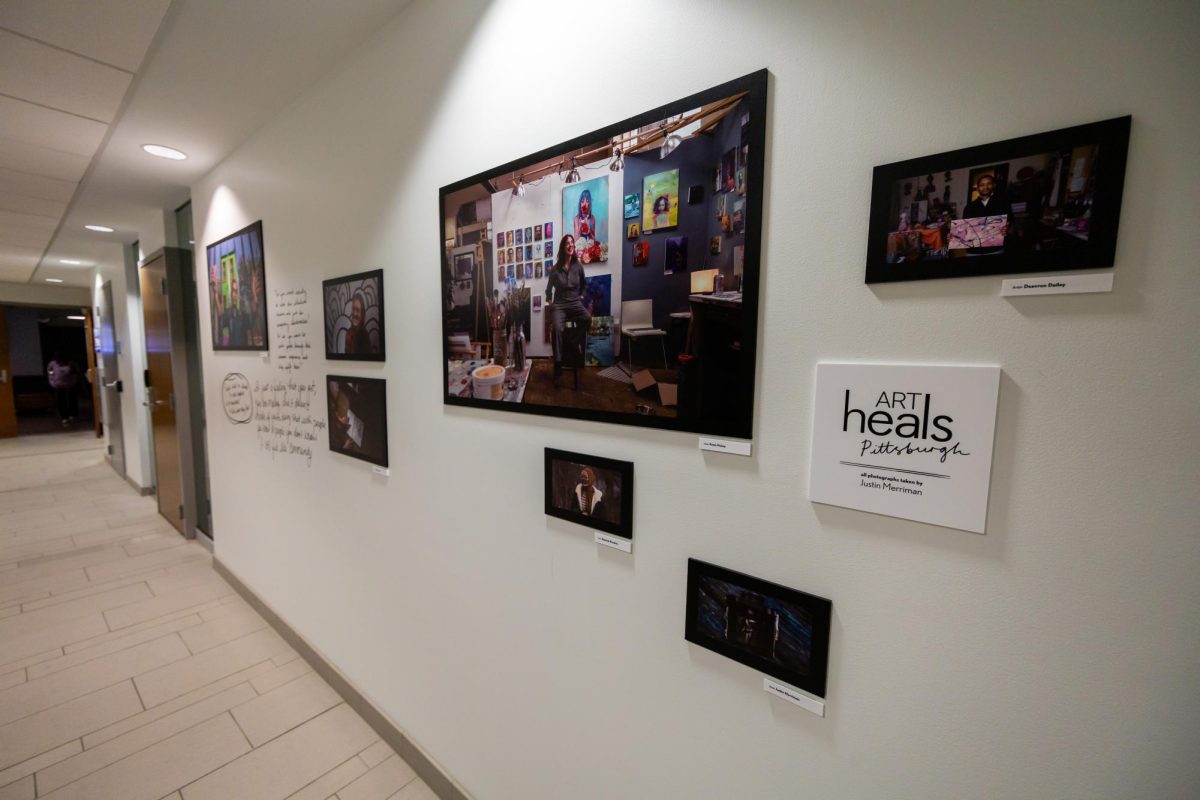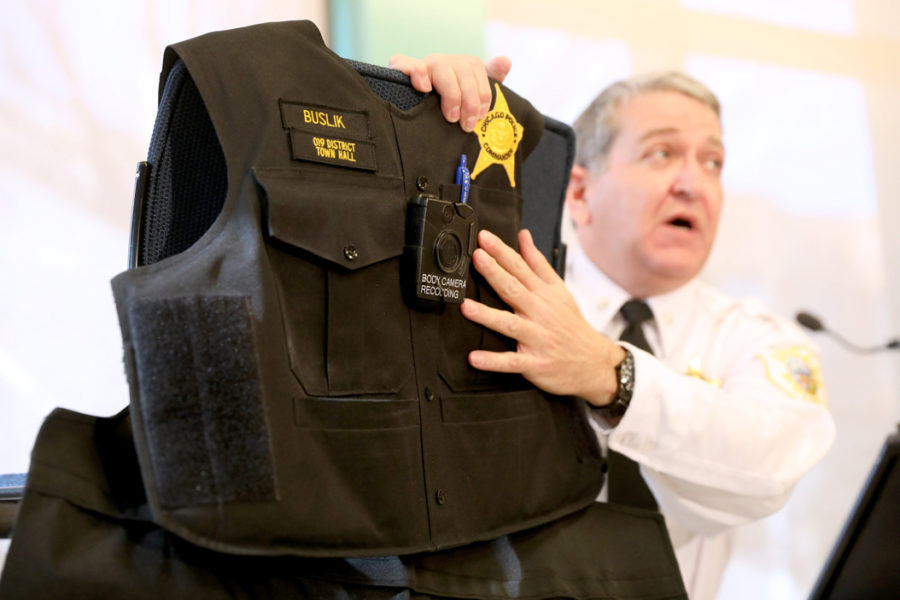In Pennsylvania, whether police officers will wear body cameras is, thankfully, no longer up for debate. They will, but the public viewing and obtaining of footage is turning into a contentious issue.
The American Civil Liberties Union of Pennsylvania hosted a panel discussion in Lawrenceville Thursday night to discuss how footage gathered from police body cameras can be disseminated. The panel was a result of a new bill — Senate Bill 560 — pending in the state Senate that would allow law enforcement or prosecutors to deny public record requests for videos if they think it’s potential evidence in a criminal investigation.
If the bill passes, it would mean police departments, as opposed to an outside body, are the ones allowed to make decisions about when to release footage — even if it’s one of their own officers in question.
The state implemented the use of body cameras in late 2016 but wide range support for cameras on police officers first began after the Black Lives Matter movement brought issues of police brutality and mistreatment of minorities to the forefront of American politics in 2013.
Many law enforcement agencies were quick to institute policies that demand their officers wear body cameras — police departments in Los Angeles, New York and Washington, D.C., were among the first. But legislation that stops that footage from being freely available swifty turns a tool that was meant to protect the public into one that protects police.
Similar laws either already exist or are being proposed in states around the country. North Carolina passed a bill last July that body camera footage is no longer considered public record. New Hampshire signed a similar law in June that only considers body camera recordings public record if they show the officer using force or discharge of a gun. Minnesota also exempts body camera videos from public record unless the officer’s force results in substantial harm.
Many of these laws are meant to protect officers in the event they make a mistake or mishandle a situation, but some worry making the footage publically accessible would be an infringement on officer’s privacy. But having an official recording of incidents doesn’t mean officers will face negative backlash from videos. It just provides more incentive for them to do their jobs right. Having such footage can help the public understand what an officer saw and thought, helping to justify their actions.
And regardless of whether body camera footage is open to the public or not, there will still be recordings. Bystanders filming violent police interactions on cell phones is nothing new. It’s something we see often today as many Americans become more skeptical of law enforcement and how officers do their jobs.
Just last week, the president of the Columbus, Ohio, police union claimed cell phone footage of one of his officers kicking a suspect in the head was invalid and unrepresentative of what actually happened. The video is from a distance and a bit grainy, and although it’s fairly clear the cop used unnecessary force, the minor details such as where and how he kicked the man can still be hard to see.
Given recent history, it’s easy to quickly jump to conclusions and assume the officer was in the wrong. But if we were able to see body camera footage from the scene, we could more easily know what really happened. And footage from an officer is going to be a much more reliable way to see what truly happened than relying on shoddy cell phone videos.
It’s just like video replay in a football game: the official may make one call on the field, but upon closer examination of the footage, the decision can be proven right or overturned.
But in order for that process to work fairly and properly, the police can’t be the ones allowed to decide whether they will grant the public access to the videos or not. Such a law could quickly be abused and ultimately undermine the goal of using body cameras to begin with.
Those who oppose the idea of increasing public access to body camera footage also raise concerns about the privacy of both officers and subjects. But as a servant of the public, a police officer isn’t entitled to complete privacy when doing their job. And since that job allows them to use deadly force, we should be able to see them doing it — and help determine if they’re abusing it.
We don’t want to see every facet of their lives while on duty. We just want to know that while they’re keeping us safe, they’re also treating us right. In almost any public realm, from the grocery store to the bank to restaurants, cameras are there to watch us, so we should be able to ask the same of our public servants while they’re in the public sphere as well.
For those being recorded, privacy issues regarding victims of violent crime such as abuse, domestic violence, sexual assault or crime taking place on private property raise legitimate issues. The ACLU of Pennsylvania argues that protecting the privacy of victims and keeping footage open to the public aren’t mutually exclusive. We can still have publically available footage and protect the privacy of victims by redacting faces of victims, bystanders and witnesses and excluding videos captured inside homes.
The point of body cameras should be to increase accountability among police officers and foster trust and transparency between police and the communities they serve. They aren’t meant to act as evidence in possible investigations, so we shouldn’t pass legislation that makes that their main priority.



